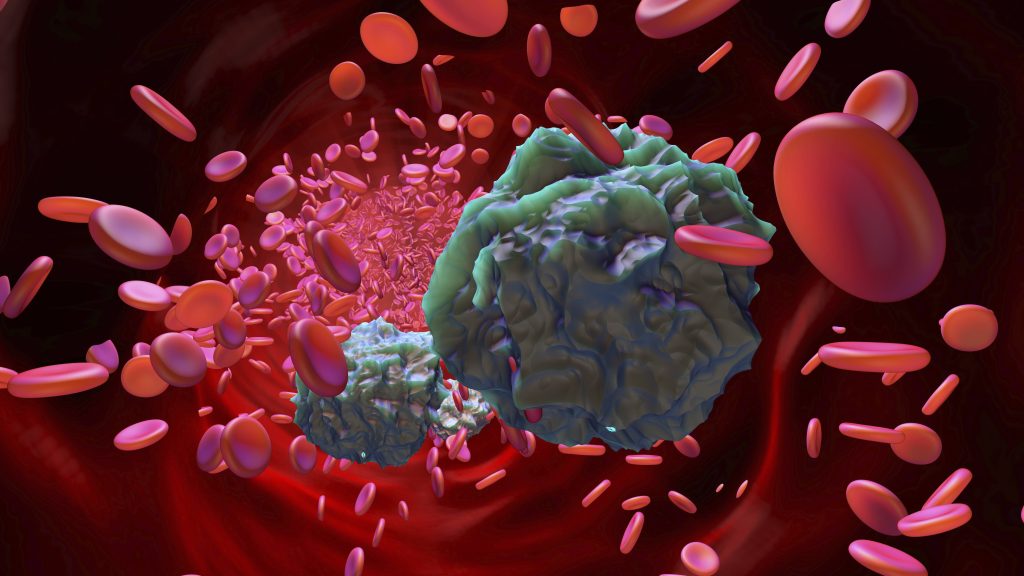Advancing treatments for acute myeloid leukemia

Advancing treatments for acute myeloid leukemia
December 20, 2022
Acute myeloid leukemia (AML), also called acute myelogenous leukemia, is a cancer of the blood and bone marrow, the spongy tissue inside bones where blood cells are made. The disease progresses rapidly, affecting a group of white blood cells called myeloid cells, which normally develop into mature red blood cells, white blood cells and platelets.
"There are acute and chronic leukemias, explains Dr. James Foran, an oncologist at Mayo Clinic. "The chronic ones tend to happen slowly over many years. You can watch it for a period of time until it really becomes active. The acute leukemias come on more quickly and cause people to get sick more quickly. Hence, the word acute."
AML occurs when a bone marrow cell develops mutations in its DNA that cause the cell to continue growing and dividing. When this happens, blood cell production becomes out of control. The bone marrow produces immature cells that develop into leukemic white blood cells called myeloblasts. These abnormal cells are unable to function properly, and they can build up and crowd out healthy cells.
Signs and symptoms of AML include:
- Fever
- Bone pain
- Lethargy and fatigue
- Shortness of breath
- Pale skin
- Frequent infections
- Easy bruising
- Unusual bleeding
Treatment of acute myeloid leukemia depends on several factors, including the subtype of the disease, and a person’s age and overall health.
At the time of diagnosis, a bone marrow biopsy is performed, and testing is done to determine the subtype of AML. Genetic testing on leukemia cells helps oncologists plan treatment that will give patients the highest chance of remission.
"There have been massive advances in the last five or seven years," explains Dr. Foran. "We understand that almost everybody with acute myeloid leukemia will have some genetic abnormality in the leukemia cells. Some mutations predict for a lower remission rate with standard chemotherapies. Those are situations where we're looking for new therapies that would be more effective, new strategies — whether that's an immune treatment, a targeted therapy, a different type of chemotherapy. So those mutations really helped guide us on how to apply the new strategies."
Dr. Foran says Mayo Clinic is a leader in ongoing research and clinical trials to refine and improve targeted and immune therapy treatments. New approaches include expanding the use of bone marrow transplants and using CAR-T cell therapy.
"Mayo Clinic is in the front of the field, I believe. We're studying more targeted treatments to go after cells with mutations, to try to spare side effects, and get the most benefit in treating leukemia," he says. "We're continually and actively looking for new strategies to improve outcomes for patients."
On this Mayo Clinic Q&A podcast, Dr. Foran discusses acute myeloid leukemia, including the latest research and advances in treatments.




